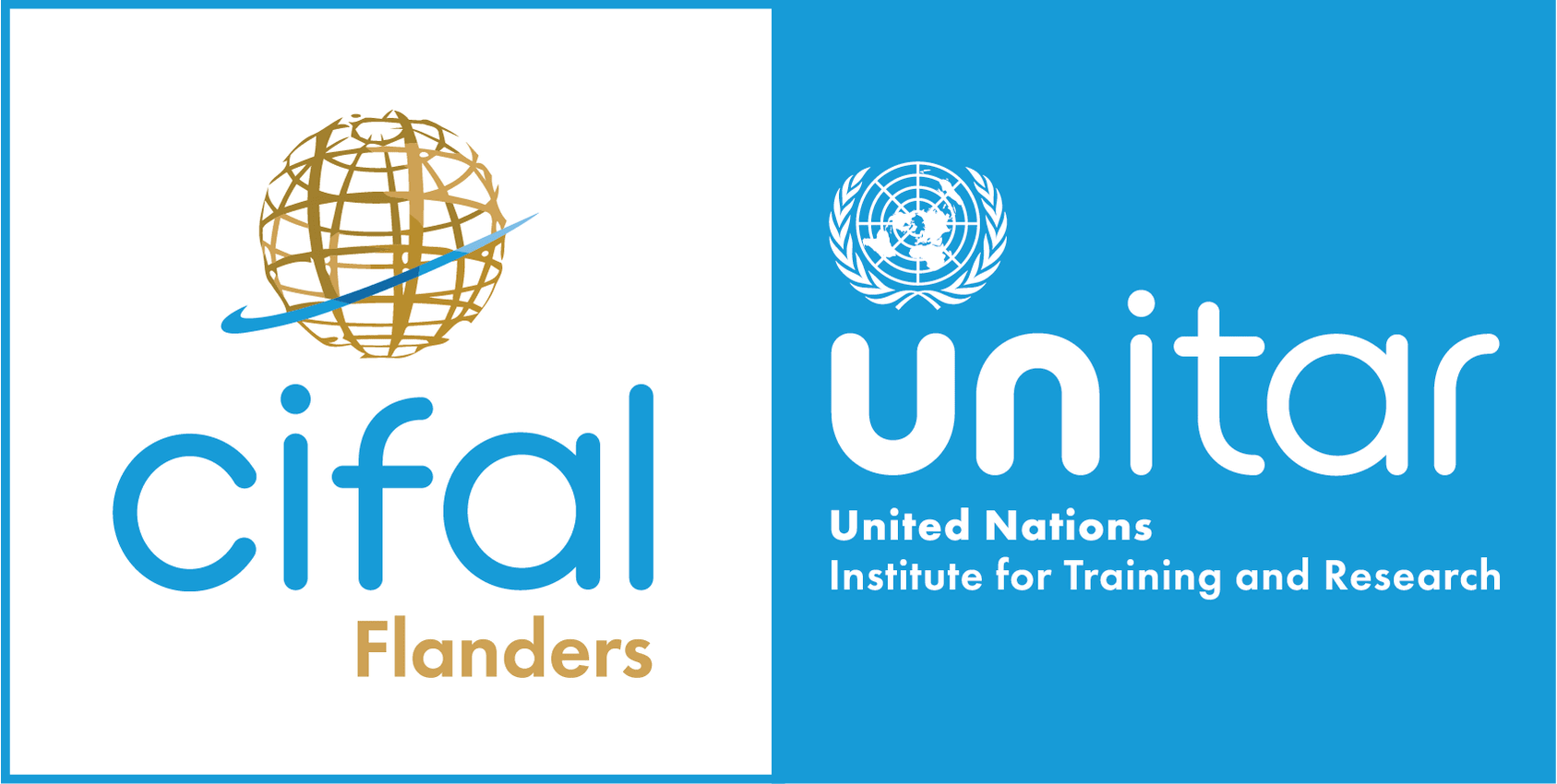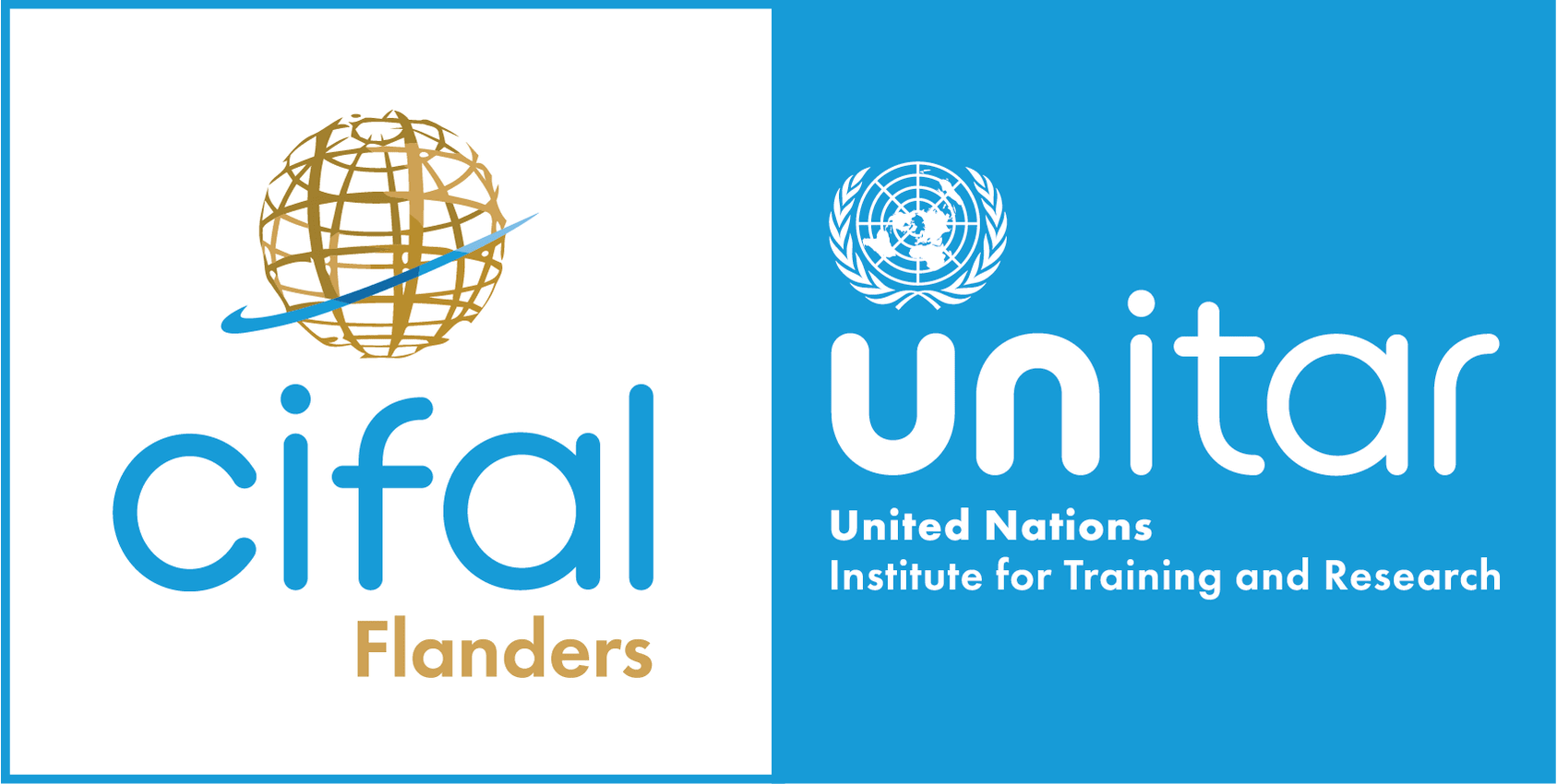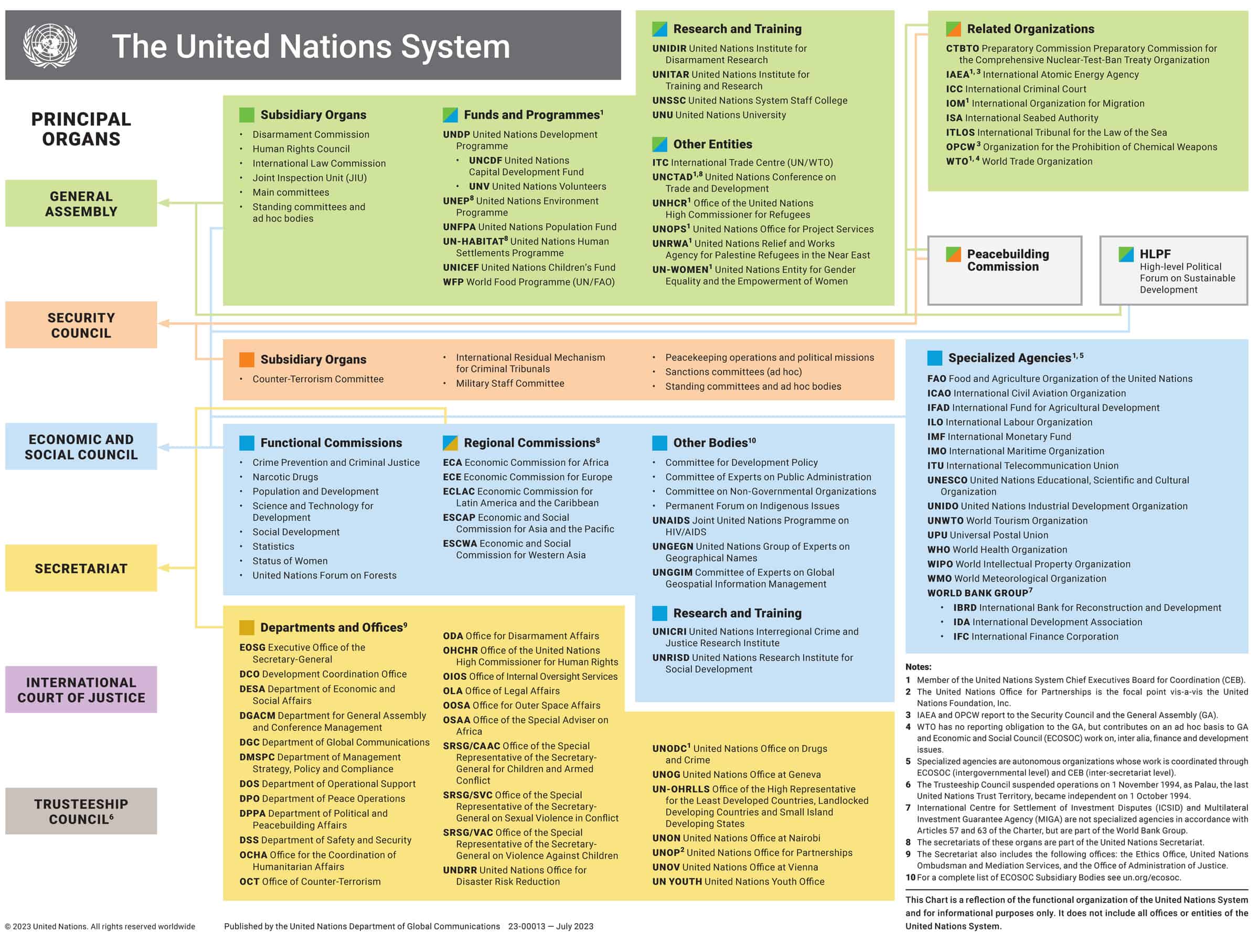United Nations
ORGANOGRAM
The United Nations is an international organisation founded in 1945. It is currently made up of 193 Member States. The mission and work of the United Nations are guided by the purposes and principles contained in its founding Charter.
Due to the powers vested in its Charter and its unique international character, the United Nations can take action on the issues confronting humanity in the 21st century, such as peace and security, climate change, sustainable development, human rights, disarmament, terrorism, humanitarian and health emergencies, gender equality, governance, food production, and more.
The UN also provides a forum for its members to express their views in the General Assembly , the Security Council , the Economic and Social Council , and other bodies and committees. By enabling dialogue between its members, and by hosting negotiations, the Organisation has become a mechanism for governments to find areas of agreement and solve problems together.
The UN’s Chief Administrative Officer is the Secretary-General , and the principal judicial organ of the United Nations is the International Court of Justice .
communication
UN Radio
Beside their website , the United Nations also uses other media to communicate, most notably through its UN Radio and UN TV.
Since its foundation in 1946, UN Radio broadcasts content that includes weekly and daily radio programmes, newspots, features and interviews. It also does this in several languages: English, French, Mandarin Chinese, Portuguese, Russian, Spanish, Literary Arabic, Swahili and Bengali.
All programs are available via podcasts and RSS feeds.
UN Television
The United Nations Television , is the public affairs television arm of the United Nations. It broadcasts live and recorded gavel-to-gavel meetings of various United Nations agencies and arms from around the world, including the General Assembly and the Security Council.
UN in Belgium
UN-EU LIAISON AGENCIES IN BRUSSELS
Due to the importance of Brussels as the European capital, the Brussels-Capital Region also hosts several UN-EU Liaison Agencies:
Food and Agriculture Organisation of the United Nations (FAO)
International Labour Organisation (ILO)
International Organisation of Migration (IOM)
Office of the High Commissioner for Human Rights (OHCHR)
The United Nations Office for Disaster Risk Reduction (UNSDR)
UN Liaison Office for Peace and Security – DPKO/DPA/DFS Liaison Office (UNLOPS)
United Nations Capital Development Fund (UNDCF)
United Nations Children’s Fund (UNICEF)
United Nations Development Programme (UNDP)
United Nations Educational, Scientific and Cultural Organisation (UNESCO)
United Nations Entity for Gender Equality and the Empowerment of Women (UN Women)
United Nations Environment Programme (UNEP)
United Nations High Commissioner for Refugees (UNHCR)
United Nations Human Settlements Programme (UN-Habitat)
United Nations Industrial Development Organisation (UNIDO)
United Nations Office for Project Services (UNOPS)
United Nations Office for the Coordination of Humanitarian Affairs (OCHA)
United Nations Office in Brussels (UNBRUSSELS)
United Nations Office on Drugs and Crime (UNODC)
United Nations Population Fund (UNPFA)
United Nations Regional Information Centre for Western Europe (UNRIC)
United Nations Relief and Works Agency for Palestine Refugees in the Near East (UNRWA)
United Nations University Institute on Comparative Regional Integration Studies (UNI-CRIS)
BELGIUM
FLANDERS
Apart from CIFAL Flanders, there are many other UN-initiatives in Flanders:
United Nations Association Belgium Flanders (Vereniging voor de Verenigde Naties)
Vlaamse UNESCO Commissie & UNESCO Platform Vlaanderen
United Nations University Institute on Comparative Regional Integration Studies (UNU-CRIS)
Intergovernmental Oceanographic Commission (IOC) / IODE Project Office Oostende
WALLONIA
Beside UN-initiatives in Flanders and UN-EU Liaison Offices in Brussels, there are also Wallonian UN-initiatives:
Association pour les Nations Unies Belgique (Association pour les Nations Unies)


